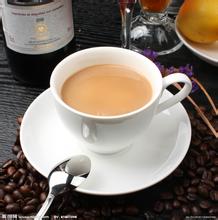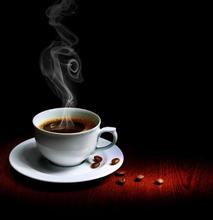Rough grinding is suitable for brewing utensils-hand brewing coffee pot which kind of appliance is better brand introduction
Rough grinding is suitable for brewing utensils-hand brewing coffee pot which kind of appliance is better brand introduction
Medium-gravel, like rough sand
Brewing utensils: drip coffee machine (flat bottom filter), siphon pot, vacuum pot
Fine-smoother to the touch, finer than sugar and table salt
Brewing utensils: drip coffee machine (conical filter), Italian mocha pot, siphon pot, vacuum pot
Ultra-fine-thinner than sugar, but not too powdery, you can still distinguish the particles from the touch.
Brewing utensils: Italian espresso machine (pump or steam), hand coffee
Turkish-powdered, like flour, the cheapest (blade) grinder cannot grind this fineness
Brewing utensils: Turkish copper pot (ibrik)
Each extraction apparatus has its own appropriate degree of grinding, so grinding is not the degree of grinding you want. As I just said, when extracting coffee with filter paper trickling filtration, the coffee powder is too coarse or too fine, which means that the most suitable grinding degree is medium to medium roughness.
Is ultra-thick grinding better? This is also a matter of degree. If the grinding is too rough, the hot water will easily fall through the filter paper, and the delicious ingredients of the coffee will not be fully extracted. In this way, the coffee that falls into the coffee pot will become a mild liquid.
In the process of grinding and extraction, there is an unchanging basic rule, that is, "the finer the grinding degree, the heavier the bitterness, and the thicker the grinding degree, the weaker the bitterness." This is based on the fact that the surface area of coffee powder is covered by hot water. From this, we can know the relationship between the extraction apparatus and the grinding degree of coffee powder.
Espresso coffee, for example, grinds deeply roasted beans and uses an espresso machine to extract a small amount of coffee liquid in a short period of time, resulting in coffee with a strong bitter taste: what about the same coffee powder extracted by filter paper trickling filtration? The result of the actual operation is that the filter paper will be blocked by coffee powder, which makes it difficult for the injected hot water to pass through, the extraction time is prolonged, and finally evolves into the case of excessive extraction.

Important Notice :
前街咖啡 FrontStreet Coffee has moved to new addredd:
FrontStreet Coffee Address: 315,Donghua East Road,GuangZhou
Tel:020 38364473
- Prev

Delong semi-automatic coffee machine can not tell what is wrong with the coffee.
Delon semi-automatic coffee machine voice can not tell what is wrong with the coffee Delong EAM3000,4000 series coffee machine, press the key, sometimes can not turn on, sometimes can not turn off, coffee powder lamp (the light in the lower right corner) will light up for no reason, sometimes the hand touches the coffee powder key, without pressing the button, the light will come on. Replace the panel circuit board and troubleshoot. Automatic coffee machine extractor stuck
- Next

Why the number of coffee machine grindness is smaller and finer-Delon coffee machine grinder is clogged
Why the number of coffee machine grinder is smaller and finer-Delon coffee machine grinder clogging gear bean grinder can be divided into conical and flat bean grinder according to the shape of the grindstone, as the name implies, there are two flat grinding gears or grindstones inside, and the size of the coffee powder particles is more uniform. Tapered gear bean grinder due to the connection between internal grindstone and coffee beans
Related
- What is the Philharmonic pressure? How to use Philharmonic pressure to make delicious coffee
- Why does a hand grinder have more fine powder than an electric grinder?
- In addition to the hot mom, what is the difference between the versions of EK43 | ditting and Mahdi ek43?
- What kind of equipment do you need to make coffee by hand? Introduction to novice starter cooking equipment tools
- Espresso needs to be ground how thick and thin scale entry Italian Coffee Machine Bean Grinder investigation and Grinding course
- How much does it cost to open a small private cafe? How much does it cost to learn coffee? How to operate it?
- The difference between the flavor characteristics of hand-brewed coffee and coffee maker is hand-brewed coffee really better than coffee maker? Can I use a coffee machine to make coffee beans by hand?
- The difference between 01 and 02 of hario v60 filter cup what is the difference between 01 and 02 filter cup opening and cooking flavor
- What's the difference between the smart cup and the French kettle? Which is better, the French kettle or the Smart Cup?
- What's the difference between a smart cup and a V60 filter cup? The difference between the taste of smart cup and hand-brewed coffee

